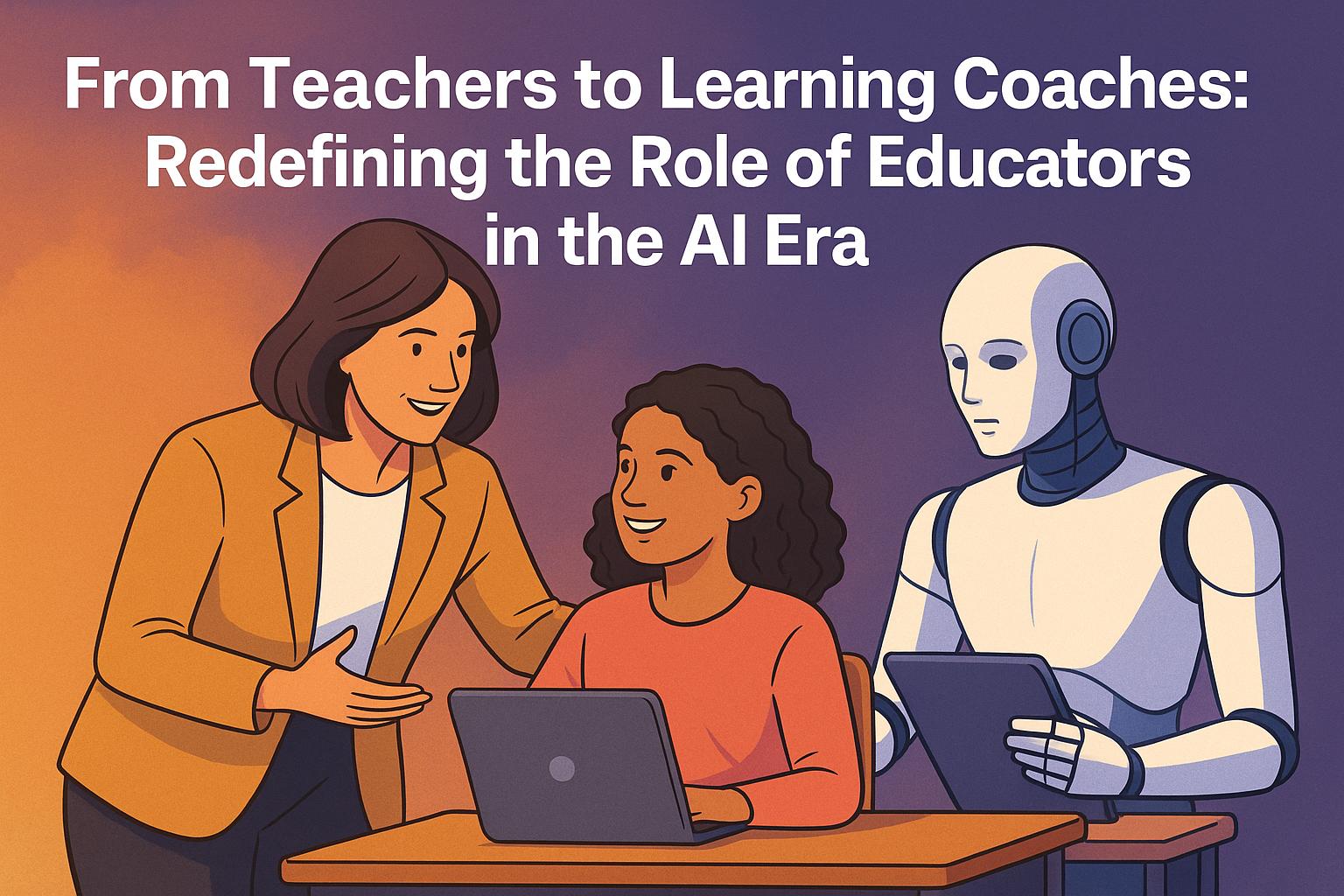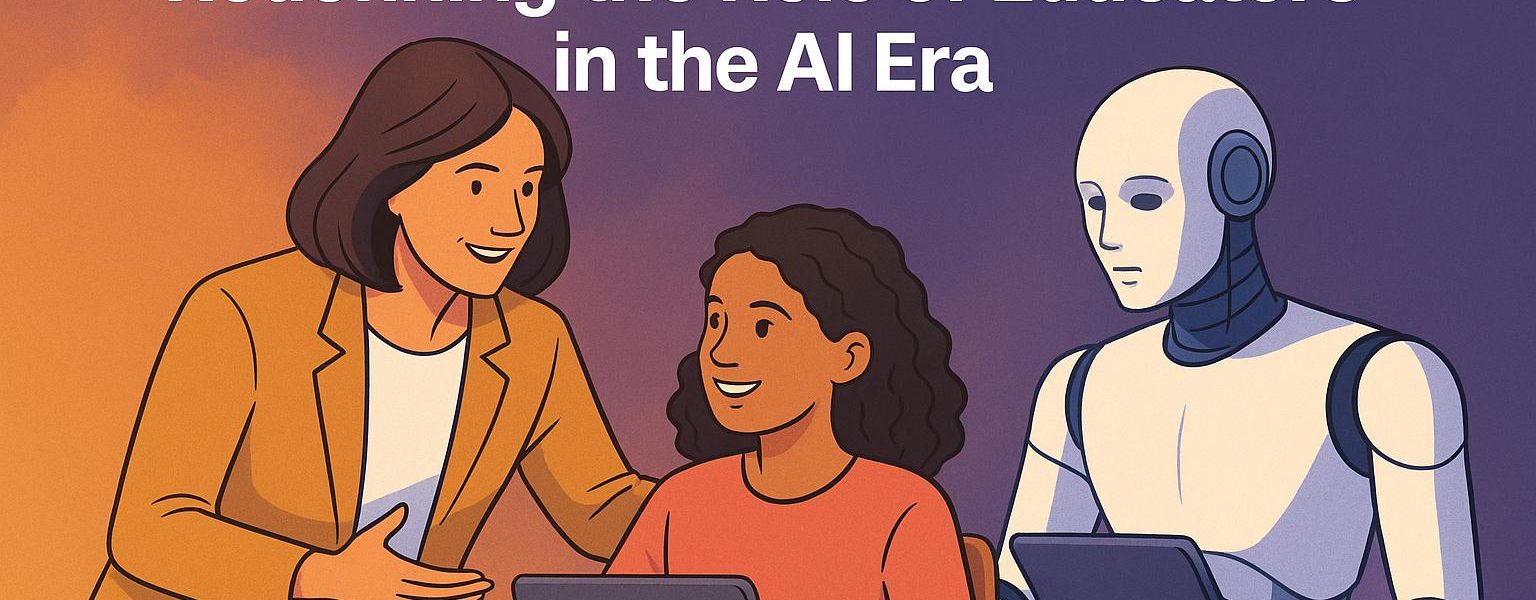For centuries, the role of the teacher was clear: stand at the front of the classroom, deliver knowledge, and evaluate students’ ability to retain it. But in 2025, that model is rapidly fading. With Artificial Intelligence handling many aspects of content delivery, assessment, and personalization, the future demands a new role for educators. Teachers are no longer just instructors — they are evolving into learning coaches, mentors, and guides who help students navigate knowledge, build skills, and find purpose.

Why the Shift Is Happening
The arrival of AI in classrooms has changed the dynamics of education. Algorithms can now deliver lectures, adapt content to individual learners, grade assignments instantly, and even answer student questions 24/7. This does not diminish the need for educators; instead, it frees them from routine tasks, allowing them to focus on deeper human-centered responsibilities: inspiring curiosity, shaping values, and fostering critical thinking.
The Traditional Teacher vs. The Learning Coach
Teacher as knowledge provider: Traditionally, teachers transferred information that students absorbed and reproduced.
Learning coach as guide: In the AI era, educators guide students in interpreting, applying, and questioning knowledge rather than memorizing it.
Teacher as evaluator: Teachers once spent hours grading; AI now automates this process.
Learning coach as mentor: Educators focus on feedback, motivation, and personal growth, building lifelong learning habits.
Skills Educators Need in the AI Era
Facilitation: Instead of delivering lectures, teachers must create interactive environments where students learn by doing.
Coaching: One-on-one or small-group mentorship will become a core part of the role, focusing on emotional and intellectual growth.
Adaptability: Teachers must integrate AI insights into teaching strategies, tailoring approaches to individual learners.
Ethical guidance: With AI providing information, teachers will help students develop judgment, empathy, and responsibility in using it.
Stories of Transformation
In Singapore, schools are retraining teachers to act as facilitators in “flipped classrooms,” where students learn content online and apply it offline with teacher guidance. In Finland, educators serve as mentors in project-based learning, where AI handles the knowledge base while teachers focus on collaboration and creativity. In South Africa, teachers working with adaptive platforms now spend less time on tests and more time on personal coaching, improving both academic outcomes and well-being.
The Benefits of Redefining the Role
Deeper learning: Students engage more actively when teachers focus on problem-solving and application instead of rote lectures.
Stronger relationships: With AI managing tasks, teachers have more time to build personal connections with students.
Lifelong learning culture: Coaches don’t just prepare students for exams; they instill the habits of curiosity and resilience that last a lifetime.
Challenges in the Transition
Shifting from “sage on the stage” to “guide on the side” is not easy. Many teachers feel unprepared for coaching roles. Training programs, curricula, and even assessment models must evolve. There’s also resistance from traditional systems that equate teaching with control rather than collaboration. The shift requires systemic change, not just individual effort.
AI as a Partner, Not a Replacement
The fear that AI will replace teachers is misplaced. Machines may provide data and automate processes, but they cannot inspire, empathize, or mentor. A student struggling with self-doubt does not just need an algorithm; they need a coach who believes in them. The AI era elevates the importance of teachers because it emphasizes what only humans can do: connect, inspire, and lead with compassion.
The Future of Educators
By 2035, the word “teacher” may sound too narrow to describe what educators do. They will be learning coaches, facilitators of curiosity, and mentors of resilience. Schools will value their ability to guide students in self-reflection, ethical decision-making, and creative problem-solving. Far from diminishing the profession, AI will make teaching more human — and more impactful — than ever before.
The classrooms of the future will be co-led: AI providing precision, and educators providing purpose. Together, they will prepare students not just to pass exams, but to live lives of meaning, courage, and innovation.
Frequently Asked Questions
Q1: Will AI reduce the demand for teachers? No. AI will automate tasks but cannot replace mentorship, empathy, and guidance. Teachers will remain central, but their role will shift.
Q2: How can educators prepare to become learning coaches? By embracing continuous training, practicing facilitation and coaching techniques, and learning to integrate AI insights into teaching strategies.
#FutureOfTeaching #LearningCoaches #InspirationUnlimited





